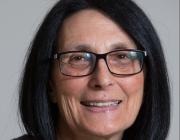Citation:
Abstract:
The aim of this article is to present the major ethical turn in Israeli documentary cinema during the past decade (2004-2016). This corpus, which shifts between the Holocaust and the Nakba, between Israeli-Palestinian conflict and the Occupation, manifests an ethical transformation in the representation of self-other relations. Unraveling the social-cultural mechanism by which the occupier automatically becomes the victim, even when s/he has committed an injustice, is the indisputable contribution of Israeli documentary cinema to triggering cinematic and public nonconsensual discourse, laying the groundwork for what I term ‘Blood Relations’ films. These films – such as Nissim Mosek’s Citizen Nawi (2007), Shlomi Eldar’s Precious Life (2010), Naomi Lev’s Ameer Got His Gun (2011), Erez Laufer’s One Day after the Peace (2012), Noa Ben Hagay’s Blood Relation (2010), Nurit Kedar and Yaron Shany’s Life Sentences (2013), Anat Zuria’s The Lesson (2013), and Nadav Schirman’s The Green Prince (2014) – lead to an inter-ethnic reconciliation that subverts ethnic binarism and calls for fluidity in self-other subject positions. Intifada documentary cinema and especially the Blood Relations films constitute, thus, a new epistemology, one that stands in radical opposition to the continued failure of Israeli society (and fiction films) towards the Other and Otherness. To characterize the Blood Relations’ agonistic reconciliation, I suggest connecting the discourse of ethics in the context of democracy and human rights (e.g., Alain Badiou, Chantal Mouffe) with the discourse of care ethics in the context of national, global, and militaristic processes (e.g., Joan Tronto, Fiona Robinson). Blood Relations films show to what extent the self and the Other, and mechanisms of inclusion and exclusion, are reliant on one another and bound to each other. In so doing, they strive for an ethical paradigm that promotes the similarity between the self and the Other and a sense of shared humanity.

